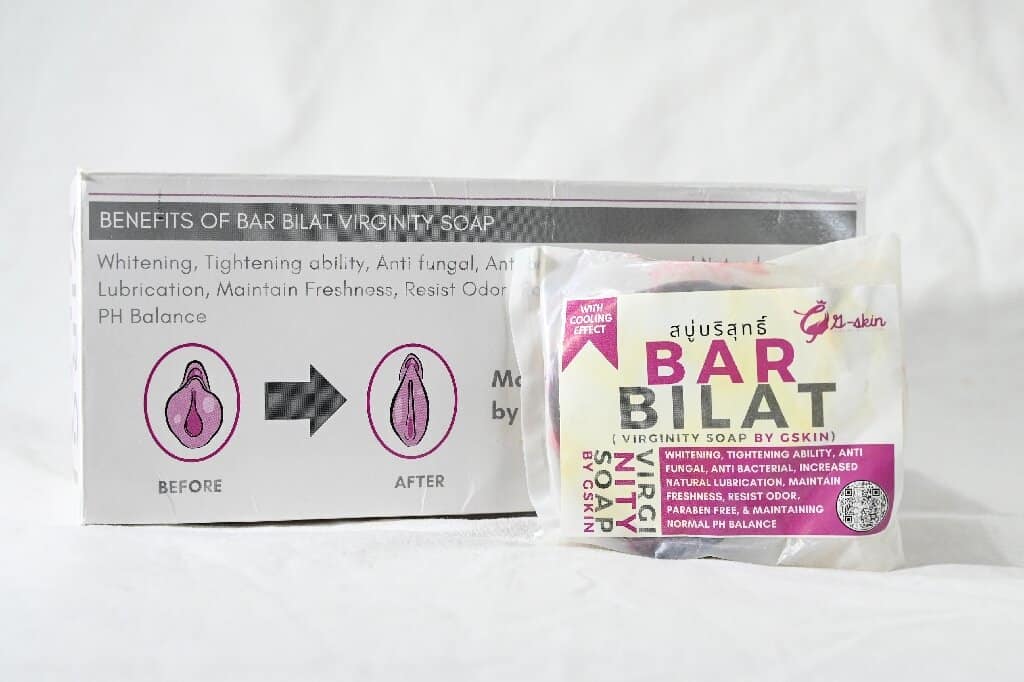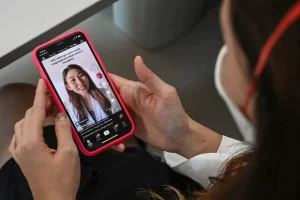Breaking News
Philippine social media users encounter a deluge of false medical posts

Rosanel Demasudlay, a Filipino vlogger, promises her hundreds of YouTube subscribers that the heart-shaped “virginity soap” bar may be used to securely “tighten” their genitalia.
The video is a part of a flood of false and dangerous medical posts on social media, where Filipinos are among the most active users worldwide.

Many people in the Philippines looked for treatments online since they were more affordable and accessible before Covid-19 locked people to their homes and made them afraid to visit a doctor.
The AFP Fact Check team witnessed an increase of false information regarding unproven cosmetic items and quick fixes for chronic ailments during the pandemic.
The majority are displayed on Facebook, the most popular social media platform among the 76 million internet users in the Philippines, as free postings or paid adverts.
They can spread undetected for weeks or even months as Facebook tries to control the stream of false information that is flooding its site.
Facebook has a multi-stage, primarily automated review mechanism to evaluate advertising before they are published, but there is no verification of posts before they go live.
Many of the products are advertised in doctored videos that give the impression that real medical experts are recommending them.
Some are mentioned in fabricated news articles, and others are promoted by vloggers like Demasudlay.
Many claims have been refuted by AFP fact-checkers, including one that purported to sell a herbal remedy for diabetics as a substitute for insulin in a fabricated Filipino news item.
More than three million people watched the fake movie on a single post, it was shared more than 7,000 times, and approximately 9,000 people commented on it, many of whom wanted to buy it.
The 15-minute film by Demasudlay was published in August 2022 and had over 10,000 views.
She made the erroneous claim that the Philippine Food and Drug Administration had approved the “Bar Bilat Virginity Soap” as a therapy for skin issues and a method to tighten the vagina.
In a local Filipino language, the word “bilat” denotes the vagina.
Actually, the FDA has advised against using the “unauthorized” soap due to potential health hazards, which include everything from skin irritability to organ failure.
Many months later, Demasudlay acknowledged in a another video that the soap had made her “itchy to the point of bleeding,” yet she persisted in marketing it.
Demasudlay declined to give AFP an interview.
– International issue:
Concerned about the spread of false medical information during the epidemic, Filipino doctors started posting videos online that offered free advice on common health issues.
The strategy, however, backfired when proponents of fraudulent therapies exploited snippets from those videos to give their own posts credence.
One of those targeted was Geraldine Zamora, a rheumatologist in Manila’s capital.
She started making films in 2020 and uploading them on TikTok, where she has amassed more than 60,000 fans.
That was advantageous for us since it allowed us to share our medical expertise with those who otherwise wouldn’t have access to medical professionals, according to Zamora.
Hundreds of thousands of people watched her videos.
The FDA had previously alerted customers about an unregistered brand of dietary supplement for arthritis, but afterwards the clip was used to sell it.
Before Facebook removed the modified posts, they had been viewed tens of thousands of times.
According to Zamora, several of her patients thought about buying the product under the impression that she was recommending it.
According to the World Health Organization, the pandemic may have made “inappropriate marketing and advertisements” for unlicensed medical items an even bigger problem than it already was.
Eleanor Castillo, a public health specialist at the University of the Philippines, claimed that because there aren’t enough doctors in the nation and Filipinos use the internet a lot, they are particularly susceptible to incorrect or misleading health claims.
Although while we have rural health units and village health centers, many of them lack doctors or only see them sometimes, especially in remote locations, according to Castillo.
Using unapproved therapies can have serious repercussions.
The Filipino Academy of Ophthalmology’s president, Vicente Ocampo, claimed that individuals as young as 12 had gone blind after taking eye drops they had purchased online rather than seeing a doctor.
It bothers us that people will simply trust commercials that promise to quickly solve all eye issues and spend high fees for these eye drops, according to Ocampo.
Ocampo claimed that Facebook posts hawking an unregistered eye drop business had made use of real-life medical professionals and the name of the academy.
But after issuing warnings about the false information, the academy found it difficult to get traction.
When it alerted customers about the fake posts in September 2022, it received 57 interactions—likes, shares, and comments.
Four advertisements for the product examined by AFP fact-checkers received nearly 34,000 interactions in the same month.
As a component of Facebook’s parent company Meta’s third-party fact-checking initiative, AFP employs a global team of journalists who dispel false material. A total of 80 organizations, including media outlets, do research that includes checking Facebook, WhatsApp, and Instagram posts.
Some of the popular medical Facebook posts that AFP has disproved contained paid adverts.
Any “promises or hints of unrealistic outcomes” for “fitness, weight loss, or economic opportunities” are forbidden per Meta’s ad policy.
It states that advertisements for over-the-counter medications must adhere to the permits and approvals necessary by regional regulations.
However hundreds of product adverts that had been refuted by AFP were still present, keyword searches on Meta’s ad collection turned up the information.
According to Meta, illicit business listings are something they are working to “address” with Philippine law authorities.

